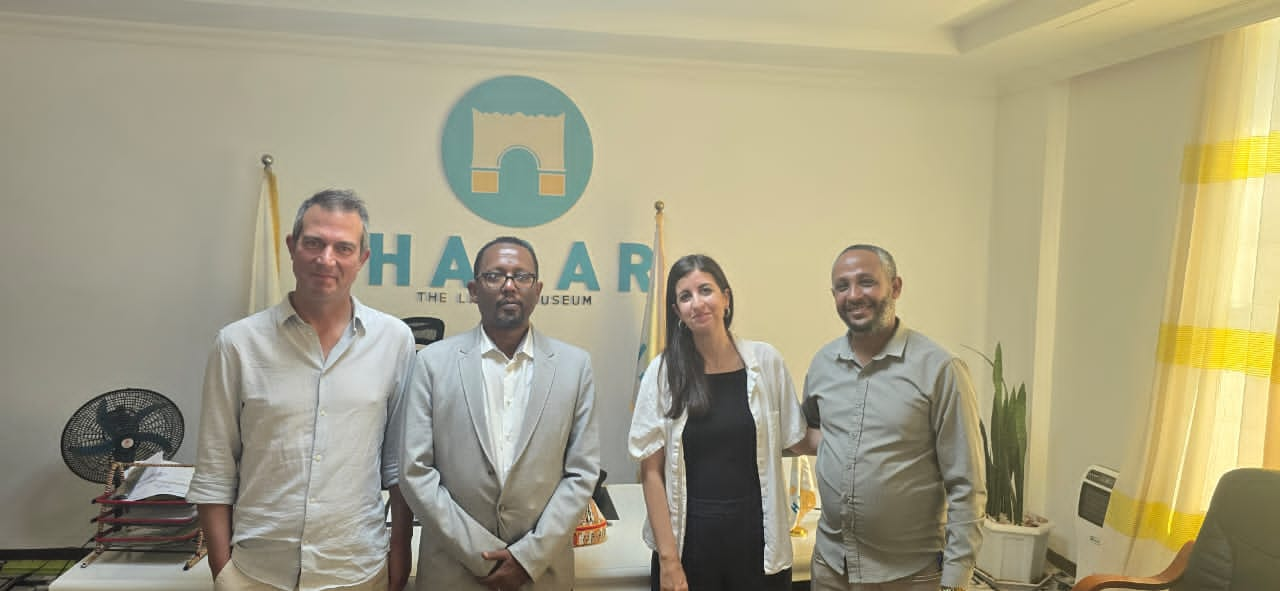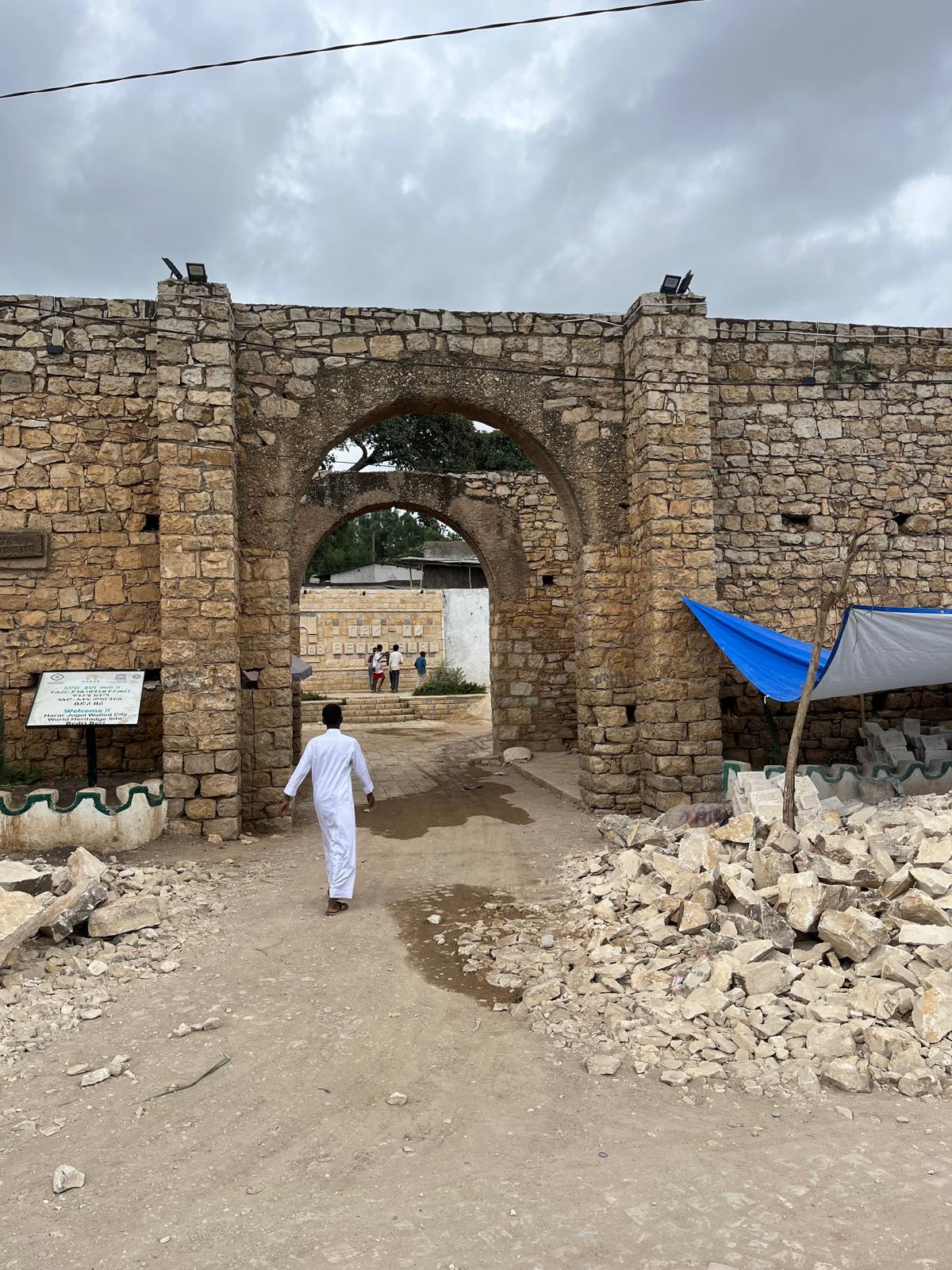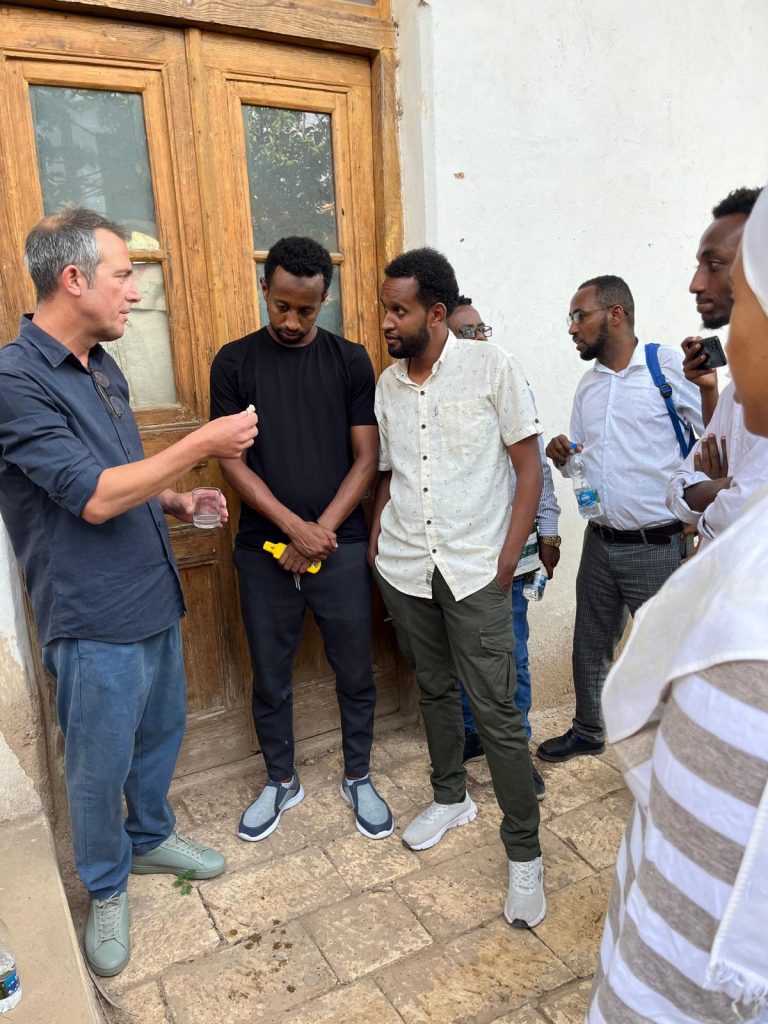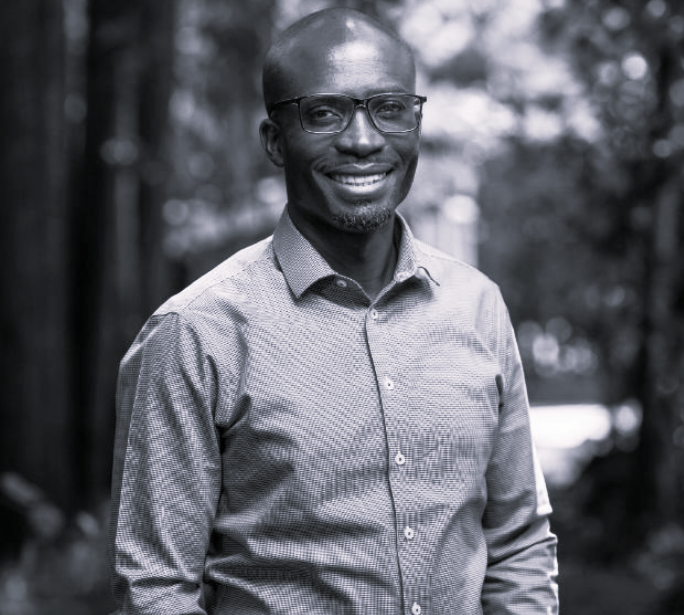: Workshops
Strategic Planning for Heritage Managers
From 9 to 11 May 2025, HERITΛGE hosted an online workshop on strategic planning for heritage managers, led by Dr Alexandros Papalexandris. The workshop brought together 18 participants from 13 countries across Africa and Europe, aiming to strengthen strategic thinking, build organisational capacity, and support long term planning in the heritage field.
Over three days, participants explored key concepts such as vision and mission setting, stakeholder engagement, SMART objectives, and the role of values in strategy. They learned to use practical tools including SWOT and PESTEL analysis to assess internal and external environments, and examined the differences between planned and emergent strategies.
Working in teams, participants applied these concepts to four real projects: digitising rural culture in South Africa, preserving traditional African sports and games, creating a youth heritage club in Uganda, and documenting a historic monastery collection in Ethiopia. These case studies encouraged collaborative learning and practical application.
The second day featured a guest lecture by Debashish Nayak, a leading architect and heritage expert, who shared insights from over three decades of work on urban conservation in India. His talk highlighted the importance of community involvement and education in heritage preservation, drawing on his experience leading Ahmedabad to become India’s first UNESCO World Heritage City.
The course leader really articulated everything till I really understood and I appreciate his patience through out. [The course will help me to] strategic plan and execute our vision and mission and align them.
~Paidamoyo Mandizvidza, Deputy Director Digital Content and Multimedia Broadcasting at African Traditional Sports and Games Confederation
The final day focused on competitive advantage, strategic implementation, and evaluation. Participants discussed how to align resources with organisational goals and studied cases from institutions such as the British Museum and Cirque du Soleil. They also explored the use of feasibility studies and business plans to support strategic initiatives.
The workshop was a great success, equipping participants with practical tools and strategic insights tailored to the needs of the heritage sector. Feedback was overwhelmingly positive, highlighting the value of real case studies, expert guidance, and peer learning.
For more information about HERITΛGE’s workshops, go to our open courses page, or follow us on Facebook, Twitter / X, LinkedIn or Instagram.
Countries represented: Czech Republic, Ethiopia, Ghana, Kenya, Lesotho, Niger, Nigeria, Rwanda, South Africa, Tanzania, Uganda, Zambia, Zimbabwe.
Building Local Capacity for Heritage Conservation in Harar Jugal, Ethiopia
by Xanthippi Kontogianni, Ethiopian Program Manager, HERITΛGE
Harar Jugal, the fortified historic town recognized as a UNESCO World Heritage Site, stands as a living testament to Ethiopia’s rich cultural and architectural heritage. With its intricate alleyways, traditional Harari houses, centuries-old mosques, and lively open markets, Harar has long served as a cultural and commercial melting pot. The town holds immense historical value while simultaneously serving as a vibrant home for its local community. However, the preservation of this unique urban landscape is increasingly threatened by urbanization, inadequate maintenance, and the impacts of climate change.
To both leverage Harar Jugal’s potential for the benefit of its contemporary inhabitants and safeguard the historic center for future generations, there is a pressing need to develop specialized skills in heritage conservation, traditional building techniques, and sustainable urban management. Strengthening local capacity in these areas is essential to ensure that the cultural and historical integrity of Harar remains intact while responding to the evolving needs of its residents.
Walls of Harar Jugal.
In December 2024, the Culture and Tourism Bureau of Harar, one of the key institutions responsible for managing the Harar Jugal historic town, invited HERITΛGE to a virtual meeting. During the meeting, Mohammed Rabi, a representative of the Bureau, proposed organizing a heritage conservation workshop for Bureau staff and close collaborators. In alignment with its mission to train and empower heritage professionals to engage communities in stewarding their cultural assets for greater understanding, sustainability, and economic development, HERITΛGE welcomed the initiative and agreed to deliver the proposed training in Harar.
The workshop on Heritage Conservation was conducted in a blended format, combining online and in-person sessions held on 7-9 and 21-23 May 2025, respectively. This flexible format ensured accessibility while supporting dynamic, participatory learning. The training was led by Alexis Stefanis, Assistant Professor of Architectural Conservation at the Department of Conservation of Antiquities and Works of Art, University of West Attica. The curriculum was structured around three core content areas: General Principles of Cultural Heritage Conservation, First Aid for Finds, and Preventive Conservation. The online component delivered core theoretical content through lectures, readings, and discussions, while the in-person sessions emphasized hands-on exercises, group work, and live demonstrations. The workshop attracted 13 participants (8 men and 5 women) and was delivered under HERITΛGE’s HerMaP Ethiopia training program, which is funded by the Humanities in Place initiative of the Mellon Foundation.
 Networking meeting with Mr Teweleda Abdosh Ahmed – Head of Culture, Heritage & Tourism Bureau, Harari People Regional State.
Networking meeting with Mr Teweleda Abdosh Ahmed – Head of Culture, Heritage & Tourism Bureau, Harari People Regional State.
Participant engagement was enthusiastic and highly interactive. The hybrid structure facilitated broad participation, and both components were well-attended. One of the most impactful moments occurred during Dr. Stefanis’s live tool demonstration. After observing how the tools worked and understanding their applications, participants expressed a strong desire to use them directly. Encouraged by the facilitator, they took the tools outside and began applying them at actual heritage sites, collecting data and interpreting results on-site. Many cited this hands-on activity as the most transformative part of the training. Recognizing the value of practical learning, participants formally requested that the tools be made available for their ongoing conservation work.
Dr. Stefanis’s mission to Harar was supported by Natassa Nika, Africa Programs Coordinator at HERITΛGE, and Habtamu Gizawu Tola, HERITΛGE’s local representative in Ethiopia. Together, they met with key stakeholders, including the Culture and Tourism Bureau of the Harari People Regional State, the Construction Permit and Inspection Authority, and the Heritage Department of Haramaya University. These discussions highlighted the urgent need to preserve Harar’s distinctive heritage amid complex challenges. Participants identified priority areas such as capacity building in conservation and digital preservation, community engagement, and institutional strengthening.
These insights aligned with HERITΛGE’s ongoing mapping efforts in Ethiopia. Since launching its intervention program, HERITΛGE has conducted online surveys across the country to assess training needs and identify gaps in heritage management. Findings indicate that many professionals involved in conservation projects lack formal training, especially in areas such as architectural and artifact conservation.
Demonstration of tools.
The workshop and stakeholder meetings in Harar revealed not only the need for training and technical skills but also broader systemic challenges, particularly the lack of funding for project implementation and capacity development. Stakeholders emphasized the importance of collaboration, resource sharing, and establishing equitable partnerships. As a result, HERITΛGE and the Harar Culture and Tourism Bureau committed to ongoing collaboration and began developing a joint action plan.
Brainstorming sessions generated several promising ideas for future collaboration, including co-developing project proposals for funding calls, launching targeted capacity-building programs, and even establishing a university for conservation studies in Harar. As a first step, the partners agreed to draft a series of concept notes collaboratively, with the goal of developing a shared vision that would eventually lead to the signing of a Memorandum of Understanding (MoU) between HERITΛGE and the Bureau—formalizing the new partnership.
Overall, the experience in Harar marked a significant step forward in conservation capacity building and demonstrated the value of inclusive, hands-on training combined with strategic stakeholder engagement. It stands as a strong success story and a foundation for deeper collaboration in the preservation of Ethiopia’s unique cultural heritage.
Communication Strategy and Strategic Marketing for Cultural Organisations Workshop in Rwanda
From 19 to 21 May 2025, HERITΛGE hosted an online workshop on communication strategy and strategic marketing for cultural heritage professionals in Rwanda. Led by media professional Derwin Johnson, the training brought together 15 heritage and tourism practitioners from across Rwanda to strengthen communication practices, improve audience engagement, and support the long-term sustainability of their institutions.
Participants represented ten organisations involved in cultural preservation and tourism, including Shalom Safaris Rwanda, Red Rocks Rwanda, Ubumuntu Arts Organisation, and others.* The workshop created an opportunity for professionals to share experiences and gain practical knowledge in areas relevant to their work.
“Time keeping, interactive, appropriate to our environment and sectors, with a nice mood and feeling – the live session felt as if it was on site.”
Esi Chantal Umuraza – Art & Travel Ltd – Founder
Over three days, the group explored a range of topics related to communication planning and outreach. The first day focused on storytelling techniques and media writing. Participants worked on developing clear and compelling messages for different audiences, including journalists and the general public.
The second day covered digital communication, with an emphasis on social media strategies. Sessions addressed how organisations can use various platforms to reach wider audiences, plan and manage content, and evaluate the effectiveness of their online communication efforts.
“I mostly like how our invigilator communicated on time. The instructor helped us during this course. He’s very professional in terms of providing learning methodology, and we wish we could have more days, as the more we get deep, the more we like and become familiar with the course.”
Jean Aime Nisingizwe – Shalom Safaris Rwanda – Chief of operations officer
The final day dealt with communication during times of crisis. Participants learned how to prepare for and respond to difficult situations in a clear and professional manner. A practical simulation, including a mock interview and press conference, gave participants the chance to apply these skills in a realistic scenario.
The workshop was designed to be interactive and practical, with small group activities and hands-on exercises throughout. Project Manager Eirini Oikonomidi said “I really enjoyed the interaction among the participants, both with each other and with the trainer. The group exercises were very effective and enjoyable for everyone involved.”
For more information about HERITΛGE’s workshops, go to our open courses page, or follow us on Facebook, Twitter / X, LinkedIn or Instagram.
*Organisations represented included:
FASHA HUMANITY and UMUTI MU NGANZO
Muze Tubyine and cultural preservation
Bwishyura Kivu Boat Co-operative (BKBC)
Legacy Builders: Vitalice Ochieng
Vitalice Ochieng | Senior Programme Manager -TICAH (Trust for Indigenous Culture and Health), Kenya
Which workshop did you attend?
I have attended the following courses:
1. Successful Fundraising for Heritage Managers: Strategies and Best Practices
2. Communication Strategy and Strategic Marketing for Cultural Organizations
3. Interpretive Writing for Natural and Cultural Heritage
4. Project Management for Heritage Managers
5. Engaging Communities in Cultural Heritage
6. Community and Economic Development
7. Impact Assessment
Was the training an opportunity to enhance your connection with your peers?
Yes, the courses have been a wonderful opportunity to meet peers and make friends across borders. I have many friends from other countries with whom I can discuss my projects and even personal issues. Every course connected me with at least one new friend.
Has the training contributed towards the improvement of your career?
A lot. Even though I am still at TICAH, it has reinforced my leadership and the standing of my programme. The training has also enabled me to learn from other projects in different contexts, giving me valuable insights and different strategies for approaching my own projects. The opportunity to share my projects with peers during the training has also strengthened my belief in my own strategies and initiatives. Receiving feedback and appreciation when I share makes me more confident in my approaches.
Do you feel that your ability to perform relevant tasks has improved?
Yes. My understanding of community engagement, fundraising for heritage, communication, and heritage management has grown significantly.
Following the completion of the training, has your project benefited?
Yes. One of my projects, which entails the promotion of the cultural heritage of the Mijikenda community in Kenya, has benefited greatly from this training. For instance, the idea to support the community in strengthening their cultural tourism was shaped by the training on Economic Development. We were able to support the community in producing cultural dresses and costumes to celebrate the Rabai Cultural Festival in 2024.
Would you recommend this training to others?
Yes, most definitely. There are not many opportunities available for people to learn heritage management. Apart from people like me with a background in Anthropology or Cultural Studies, there are also other professionals such as managers, architects, and scientists who are in charge of heritage but may not have a cultural understanding of its management. Likewise, there are people with a background in cultural studies who may lack skills such as fundraising, communication, or project management. This training is very important for anyone working in a field where heritage, both natural and cultural, is involved.
Organising Temporary Exhibitions from your Collections and Touring Strategies Workshop
18 Heritage professionals from 13 countries joined us for the online workshop ‘Organising Temporary Exhibitions from your Collections and Touring Strategies’. The programme was led by Sophia Handaka, Co-Founder and Host of the CoMuseum International Conference and Curator of World Cultures at the Benaki Museum, Dr Evangelos Kyriakidis, Director of the Heritage Management Organization, and Dana Andrew, an independent museum consultant specialising in touring exhibitions and international projects.
Dr Kyriakidis opened the workshop with a discussion on the values that shape cultural institutions and how exhibitions can fulfil their missions. Participants reflected on their organisation’s purpose, the types of exhibitions that align with that purpose, and the impact of local, national, and international partnerships. Sophia Handaka then led a session on exhibition creation strategies, focusing on the practical aspects of planning and developing engaging exhibitions. She emphasised the role of storytelling, interpretation, and the importance of accessibility to ensure exhibitions cater to all audiences.
I have gained valuable networks that I plan on utilizing to get advice and feedback on how to refine my exhibition to make it more successful.
Priscilla Mungoma, Head of Commission for Museum Development Creative at Institution of Umukuuka Inzu Ya Masaaba
The second day featured guest speakers who shared their curatorial experiences. Alison Moloney presented her Fashion Accounts exhibition, which explored memory, resistance, and colonial legacies through clothing. Eileen Musundi from the National Museums of Kenya introduced the Kanga Stories travelling exhibition, which celebrates the cultural significance of Kanga cloth from Eastern Africa, demonstrating the power of community collaboration in exhibition design.
On the final day, Dana Andrew focused on strategies for touring exhibitions, both nationally and internationally. She highlighted the importance of aligning a touring strategy with an institution’s overall mission and shared case studies from the V&A Museum and other UK institutions. Andrew also stressed the importance of integrating evaluation into the early stages of exhibition planning to ensure long-term success and impact.
I really enjoyed how the course connected theory with practical experience. It was great to work on real-world projects, and I learned a lot through collaboration with workshop-mates.
Peter Jegede, Curator at On Your Mark
The workshop provided participants with valuable insights and practical tools to enhance their exhibition projects. “I’ve gained valuable insights on the best practices on curating a temporary exhibition. I have ained Knowledge from experts. U have gained valuable networks that I plan on utilising to get advice and feedback on how to refine my exhibition to make it more successful,” said Pricilla Mungoma, Head of Commission for Museum Development at Institution of Umukuuka Inzu Ya Masaaba.
The workshops also emphasised the need for strategic planning, creative storytelling, and effective audience engagement, and elicited enthusiasm from participants. “I really enjoyed how the course connected theory with practical experience. It was great to work on real-world projects, and I learned a lot through collaboration with workshop-mates,” said Peter Jegede, Curator at On Your Mark. “Participating in this course will help me apply new ideas and techniques to my projects, especially in curating and exhibition planning. I’ll be able to approach my work with a broader perspective, improve my skills, and create more impactful and engaging exhibitions.”
To read more about our upcoming workshops, click here.
Successful Fundraising for Heritage Managers: Strategies and Best Practices Workshop
From 28th to 30th March HERITΛGE welcomed 23 heritage professionals from 15 countries across four continents to the Successful Fundraising for Heritage Managers: Strategies and Best Practices online workshop. Over three days, participants explored practical strategies to strengthen fundraising for cultural heritage projects.
The workshop was led by fundraising expert, Linda C. Hartley, principal of H2Growth Strategies, and Sue Divine, a nonprofit leader with decades of experience working with organisations including the American Friends of the Louvre and the British Museum. Together, they provided participants with practical strategies and real-world insights into fundraising within the cultural sector.
Through this course, I learned about new information and online resources that we can utilize for effective fundraising. This stood out for me. My project will definitely benefit from new skills and resources for fundraising, thus will be positioned to mobilize more resources for activities implementation.
Didas Mwachila Mzirai, CEO at Mucho Mangoes Farmers CBO
The workshop began with a pitching exercise, where participants presented their projects in three minutes, having prepared in advance with a video on pitching techniques. They voted for the most compelling projects, which were later used in simulation activities. Participants then explored fundraising fundamentals and best practices through lectures and group storytelling. Linda introduced key concepts such as donor trends and long-term engagement, while Sue emphasised crafting impact-driven cases for support. Examples from Uganda and Ukraine highlighted the real-world relevance of these principles.
On the second day, selected participants presented their full cases for support, featuring projects from Italy, India, Ukraine, and Uganda. These presentations received detailed feedback from both peers and instructors. Sue then introduced donor research techniques, and participants used GrantStation to identify prospects and begin drafting a Letter of Inquiry.
This course will significantly enhance the strategic development and impact of my project. The opportunity to learn best practices, network with like-minded professionals, and receive expert feedback directly informed the design and sustainability of my current and future programs. What I appreciated most was the balance between practical tools and reflective discussions. The course not only provided frameworks that I can immediately apply to my work but also created a safe space to exchange ideas, challenges, and solutions with peers from diverse backgrounds.
Iryna Shevchuk, CEO at NGO Nachynnya
The final day focused on donor engagement and solicitation. Participants were offered guidance on preparing for donor meetings, followed by a simulation activity where participants role-played funding pitches. The workshop concluded with a Q&A session and participants were presented with their final task; composing a Letter of Inquiry (LOI), which could be sent directly to a prospect of their choosing after review.
The blend of expert advice, feedback, and collaboration made for a highlight successful workshop, and by the end, the group had sharpened their fundraising skills and built a strong network of peers.
To read more about our upcoming workshops, click here.





